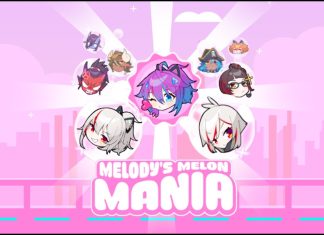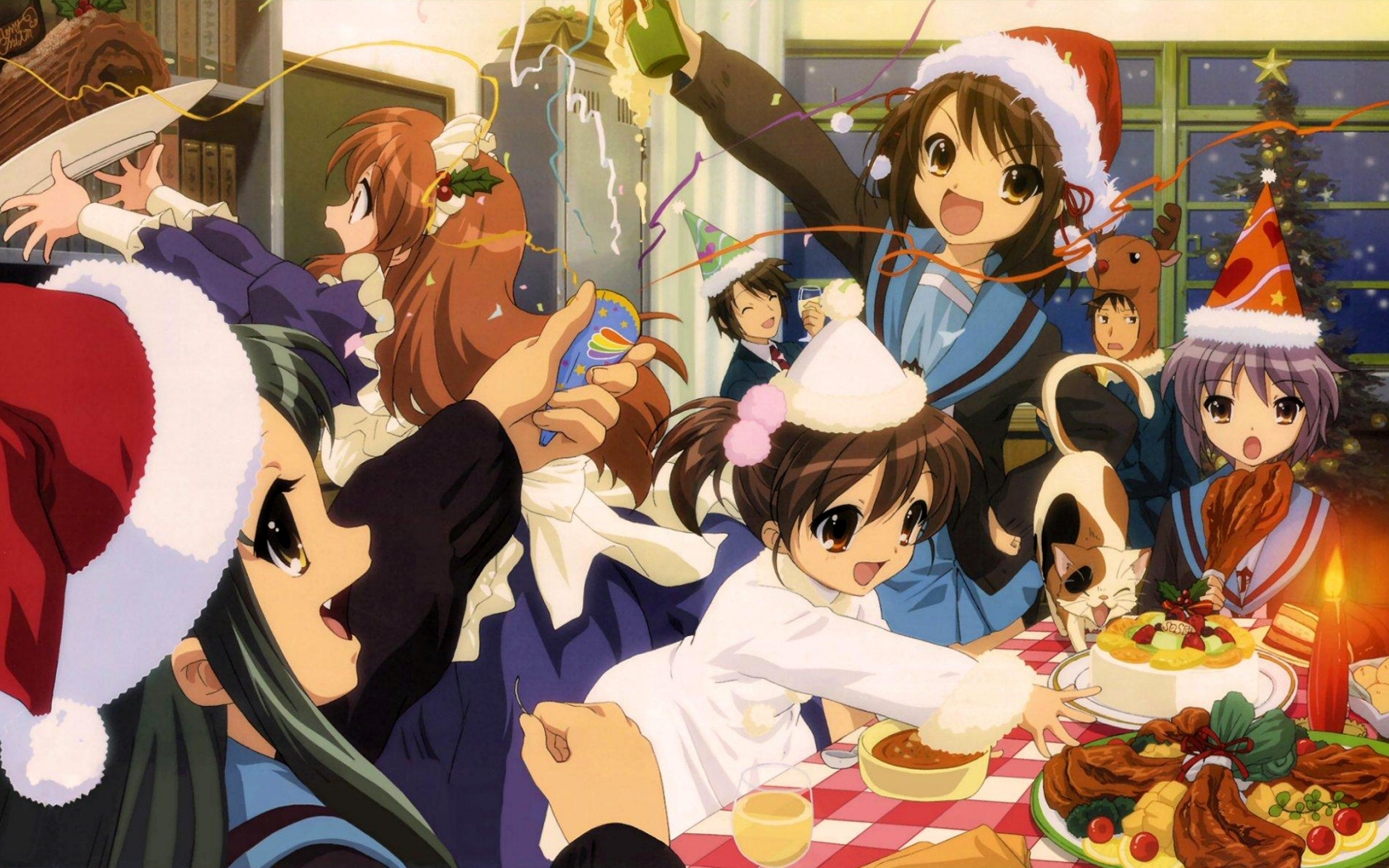While I doubt anyone was particularly hyped for Summer 2012, save maybe some Yuri Yuri fans, it has turned out to be full of unexpected surprises. Several shows I barely gave a chance have turned out to be amazing. I’ll talk about my thoughts on what I have been following, and hopefully get some suggestions on anything I’m missing out on.
Disclaimer: I’m not going to describe the plot for these, because the individual pages on the website should fill you in on that. I’m mostly going to focus on the positives of the shows as well. Also, I’ve been lazy and haven’t sampled every show of the season yet, so as I said, if you feel like I missed something let me know. I’ll leave a list of shows I still plan to watch on the bottom of the page, so look there first.
Now in no particular order and with taking great care not to spoil too much:
Oda Nobuna no Yabou (The Ambition of Oda Nobuna) starts by rather violently thrusting the viewer, and our protagonist, generic high-school student Sagara Yoshiharu, into Sengoku era Japan. However, there is a slight catch; all of the major Samurai lords have become cute girls.
Premises like this are quite polarizing. Some anime viewers will watch anything that features cute girls in a new setting, while others will complain about how absolutely lazy and unoriginal it is. If you are in the former camp, you should certainly pick this up. If you are in the latter camp or find yourself somewhere in the middle, there is still a case to be made for this show.
Oda Nobuna no Yabou isn’t groundbreaking by any means, but it is well written, well animated, and surprisingly well constructed. Most shows of this type tend to become drawn out and focus entirely on the characters. They succumb to “lost potential” and don’t focus enough on the surroundings. Oda Nobuna no Yabou isn’t like this. The story moves fast, episodes are tight and to the point, and other than the obvious historical discrepancies, the show tries hard to weave a developing story and our protaganists’s group of female friends into the time period.
The characters are different and unique in both design and personality and don’t fit exactly into the usual cookie-cutter anime archetypes. I can also foresee some quality development later into the series, especially with our protagonist and the main female lead, Oda Nobuna.
Basically, Oda Nobuna no Yabou is just as silly as it needs to be. It doesn’t take itself too seriously, but it doesn’t go overboard on its premise. Loli ninjas and teenage warlords may at first drive more serious viewers away, but the show is solid and I’m eager to see how it develops.
Overall: Not a must watch by any means, but check it out.
Tari Tari
Produced by PA works, Tari Tari is an honest slice of life series. Our five main characters are Japanese high-school students attending an uptight and seemingly luxurious school focused on music. Since any good school centered slice of life must include a club, Tari Tari does too; founded by the main character and supporting cast, of course.
However much like Oda Nobuna no Yabou, this is not a typical representation of its genre. Actually, I take that back. Tari Tari is a perfect representation of its genre; it just hasn’t fallen into the pitfall that recent, hell, even old school life shows have been trapped by. The characters in Tari Tari feel human; they have faults and imperfections. Unlike “healing” slice of life shows, some drama exists, but it doesn’t feel overdone.
Tari Tari is a lot like Ano Hana. The core of the show is about growing up, but a sense of childhood innocence persists. While I don’t think Tari Tari will get to be as sad or dramatic as Ano Hana was, it is still a mature show. Not in appearance, but thematically. That being said, the show is perfect for those who don’t entirely feel mature, those who still feel like childhood never truly ends; a majority of anime fans I assume.
Like I said, Tari Tari is a great slice of life show. While Oda Nobuna no Yabou might have a periphery demographic in history or actions fans, if you don’t like SoL, you won’t like Tari Tari.
Overall: Fans of true slice of life, especially those with a focus on music will love this one. For everyone else, it’s probably too slow.
An adaption of the light novel; it is the most watched show of the season and possibly the most controversial. What Sword Art Online lacks in pacing or any sense of arcing plot, it makes up for in amazing production values and a gorgeous setting (if you hate time skips, let’s just say avoid this one). It also appeals to those of us who lost many years of our lives to grindy MMORPGs; while we may have quit, we still nostalgia for those old times, and Sword Art Online captures the feel of a real video game accurately.
As I said; Sword Art Online is far from perfect. At least, the several episodes that have aired so far have been a bit weak. I never read the novels myself, but from what I have heard the main arc hasn’t even started yet in the anime. In any case, I’ll review what I’ve seen.
Obviously one can’t commentate on the complete lack of pacing without spoiling too much, but if you’ve been watching the series you probably drew some obvious parallels between two specific episodes and characters. It’s hard to feel for a new character when they have a large chance of just dying in the same episode they are introduced and developed. Much the same, it’s hard to care for our main two charaters, Kirito and Asuna, when their relationship seems to develop more off camera then on it. Kirito seems bipolar as well; sometimes he is a robot, other times he feels like the most empathetic character in the show. While this trait is shared by a few other anime characters, for example, Kino in Kino’s Journey, it isn’t well done in Sword Art Online.
Sword Art Online is fun, though. The setting is a beautiful fantasy world and the backgrounds impress. There hasn’t been too much action yet, but the few scenes that featured the game’s combat system were fast paced, well animated, and felt uncharacteristically realistic. The supporting cast is likable, and Kirito and Asuna are enjoyable to watch as well.
Sword Art Online is not a niche show, and most anime fans will find it enjoyable. The poor pacing and plot holes are nothing anime fans haven’t dealt with before, and if you enjoy fantasy, you really can’t ask for anything more. I’d suggest it, but at the same time I’m wary. I’m confident the show will eventually develop a main plot, but it is entirely possible it just stays the way it is. In my own opinion, filler will kill this show.
Overall: Amazing production values and tons of potential make this a show to watch out for. Yet, I can’t shake the feeling like SAO will fall short of what it could be.
I won’t lie, Jinrui wa Suitai Shimashita (Humanity has Declined) is my favorite show of the season. The colorful, bright art of the series contrasts with the dark subject matter, but also compliments the humor and general silly feel of the show. Jinrui wa Suitai Shimashita has depth, no doubt, but at heart it is cheerful and optimistic.
I might start an argument with the claim that Jinrui wa Suitai Shimashita is optimistic, but the duality of the show is its greatest strength. The main character is bubbly and lovable, but at the same time rather withdrawn. Is she carefree, or apathetic? Brave, or suicidal? Motherly, or autocratic? She is undoubtedly the shows greatest asset, and the interaction between her and other characters is, particularly in dialog, extremely clever.
Jinrui wa Suitai Shimashita‘s other strength lies in its method of storytelling. Episodes are not in chronological order, and some episodes are only linked to the one directly following; the story is told through a multitude of unique, intersecting arcs. Throughout these stories there is always a feeling of complete mystery. Jinrui wa Suitai Shimashita does not tell you anything, a reflection of its minimalistic narrative.
I could write much more on this show, and I probably will when it finishes airing. But for now, I’d suggest it to everyone. It’s entirely possible you just can’t deal with the schizophrenic nature of the show, but at least give it a chance.
Overall: Wonderfully well made and unique, this is a can’t miss show.
If you haven’t seen the first season of Moyashimon, you’ll need to Wikipedia it. The premise is just a bit too absurd.
The description on our own site does do the sequel, Moyashimon Returns, justice: “In the second season the story continues exactly where it left off previously”. If you liked season one, you will enjoy season two without a doubt. Moyashimon has always been one of the few college based anime in a high school centered medium, and Moyashimon Returns doesn’t stray from that. Quirky, funny, and even educational, it is hard to find anything like the Moyashimon franchise.
As a standalone, Moyashimon Returns is watchable as well. I’d suggest the first season of course, but starting now would be totally doable. Basically, this is a show you just need to watch. If you like it, you will usually learn to love it. If it bores you, then you aren’t alone; it can get rather dull.
Overall: A weird show that has to be watched to be judged, but a perfect sequel.
At three minutes long per episode, Chitose Get You!! can’t really be judged like the rest of this list. The art is rather bland and the jokes somewhat repetitive, but it’s an adorable and enjoyable show nonetheless. If the premise makes you uneasy, don’t fret; it really is “cute, not pedo”.
Each character has his or her own quirks, and the show basically plays around them. A love triangle involving two teachers and student, a girl seemingly in love with her father, and a girl in love with dressing in strange outfits makes up the majority of the comedy.
Being so short in length, I can’t find that pressing of a reason why one wouldn’t watch Chitose Get You!! even if all they enjoyed was the ending song. If you don’t enjoy any of it, you really have no reason to stick with it, though. I doubt the formula of the episodes will change, and I doubt any real development will go on.
Overall: Like I said, it’s three minutes long, so you won’t waste any time giving it a try. Personally, I love the show.
Joshiraku
An adaption of the manga written by the author of Sayonara Zetsubou Sensei, Joshiraku is a strange show. Certainly for western anime fans in particular. If you have consumed a large amount of Japanese media, you should be able to understand most of the jokes, but puns and specific cultural references will still escape you.
The jokes I do understand, however, amuse me to no end. If you enjoy self referencing and self aware humor, Joshiraku will not disappoint. Much like in SZS, the characters themselves are jokes. The humor then centers around how such caricatures of human beings feel about the world. Since the show is so character based, you really have to like the characters to get anything out of it.
Luckily, the girls of Joshiraku are easy to like. Each one has an especially convoluted way to view the world, and these views meld and clash to create dynamic discussions that evolve and take on a life of their own. Jokes in Joshiraku are funny because they can be so relatable, but also so absolutely ridiculous. Absurdism mixed with a touch of realism, or perhaps realistic absurdity.
Overall: A strong comedy series that requires a bit of Japanese indoctrination to understand. Don’t take it seriously, just have fun.
Well that is all I have for today, I might write a follow up article at the end of the season, but for now I just hope you enjoyed this.
Note: I plan to watch the following shortly after publishing this article:
Kokoro Connect (might just marathon), Yuri Yuri S2, Binbougami ga, and Dog Days S2.

















